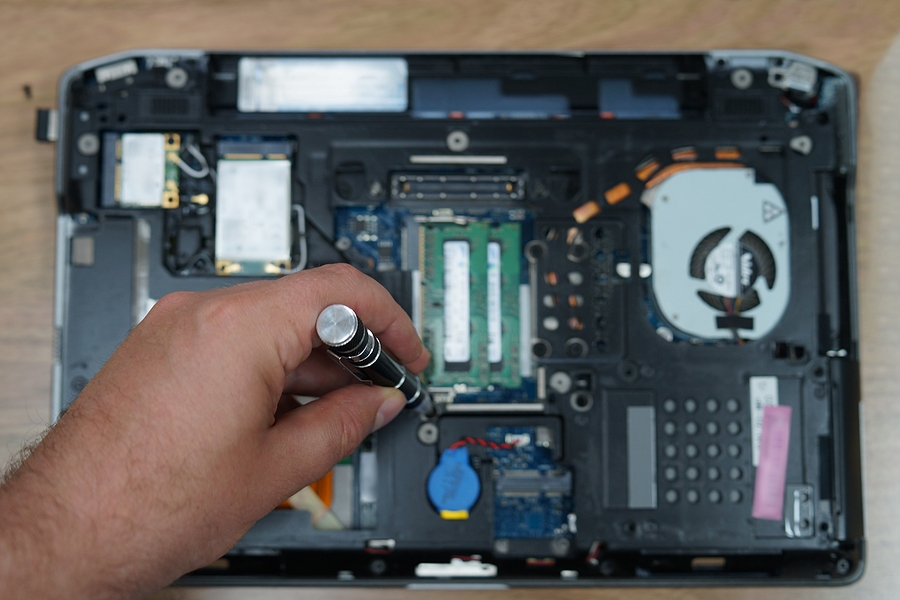
Free Geek
In Portland, Oregon, the city’s Commissioner has taken proactive steps to ensure that its old computers are put to good use. She announced that these electronics will be donated to non-profit, Free Geek, who will redistribute the devices while encouraging other businesses to do the same.
Commissioner Carmen Rubio has issued a plea for citizens noting, “This is a call to action to join the city’s efforts to create a digitally connected community.”
“The city, like any organization, must keep pace with technological evolution through regular lifecycle replacement of city computers,” she explained. “Through a partnership with Free Geek, a local nonprofit focused on refurbishing technology to give back to our community at no or low cost, the city is using its electronics donation to further its service impact and help address an important community need, the digital divide.”
A Safe Solution
She highlighted that at the peak of the COVID-19 pandemic, Free Geek provided technology to over 5,300 people in need. These individuals were all 200% below the federal poverty line and many belonged to underprivileged communities. A total of 4,258 devices were distributed across the area, additionally allowing access to support services.
Rubio was adamant that company data would remain safe, affirming, “The city is confident in turning over our computers to Free Geek because it takes data security very seriously” and adheres to NIST data sanitization standards.
“We hope you will join us in recognizing that the societal cost of digital inequality is great,” Rubio commented. “Without functional access to the internet, full participation in nearly every aspect of society is compromised, from economic success and educational achievement to positive health outcomes and civic engagement.”
Free Geek’s Step-by-Step Process
Sustainability is at the heart of what drives the mission of Oregon-based, Free Geek. On a yearly basis, the firm collects up to 1 million pounds of recycled e-waste and ensures that it is handled according to the highest safety, security, and environmental regulations. After being processed, these materials are either resold or further recycled.
With the belief that all electronics can be reused, Free Geek has created an outlet to turn nearly any type of out-of-date device into a new opportunity. Whether it’s a corporation donating old tax-deductible desktop monitors, or an individual recycling an outdated cell phone, Free Geek has a service for everyone.
- Step 1: Receive Donations
Donations are a crucial part of sustaining both the work and outreach opportunities that Free Geek provides. Technology items can be donated from both corporations and individuals at its main location, by mail, or through an arranged collection. Donators may drop items off during set donation hours or can make an appointment. These donations enable Free Geek to provide essential services and devices to the community.
- Step 2: Data Security
For technology donors’ confidential information and privacy rights to remain uncompromised, all donated devices are either wiped clean by utilizing the most advanced industry standards or destroyed onsite. Hard drives that can be reused are processed through hard drive sanitation banks, where random data is used as an overwrite method, so all information stored is irretrievable. The drive then undergoes two more overwrites followed by a quality check.
- Steps 3 & 4: Refurbish/ Recycle
Once the data is fully deleted, the technicians in the warehouse prepare the devices for recycling. Nearly a third of the devices are sent to be reused and repurposed, while the other two-thirds continue on to be recycled.
When items at Free Geek can’t be reused, refurbished, or sent to a reuse partner, they are instead passed on for recycling. At this point, staff carefully deconstruct the product into various recyclable materials including steel and plastic. Additionally, gold-bearing circuit boards and monitors are shipped off to verified partners who handle devices in an eco-friendly manner.
From its multiple rebuild departments, Free Geek works hard to repurpose and restore 30% of otherwise discarded waste. Every day of week Free Geek’s diligent build-staff works to construct laptops, desktops, MacLand, and many other devices. Free Geeks employees commit many hours to ensure that each device is built with care and accuracy, with assembly usually taking between 45 minutes up to two hours per device.
- Step 5: Devices to Those in Need
At its core, the mission of the non-profit organization is to provide technology for everyone. Through its two avenues, programming and its online store, all groups can access devices at an accessible price, or for free. For these programming initiatives; such as Plug Into Portland, the Affordable Tech Program, or via Grants, devices are offered either without cost or at an affordable rate. Additionally, by selling tech at discounted prices through its eBay shop, revenue from the sales goes directly to sponsor educational outreach programs.
Continued Outreach Opportunities
Free Geek has many ways for individuals to get involved in the organization’s mission. Community members can volunteer, become an ambassador, become a member, donate business devices, or donate personal electronics. Portland and its local government continue to seek ways to make technology accessible for everyone.
